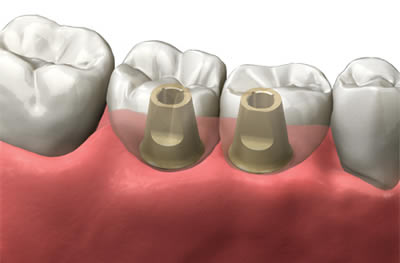Tooth Loss And How To Overcome It

Lost a tooth? Here are the replacement options available for our Ipswich patients.
We will all be familiar with losing a tooth when we were young. The wobbly weeks waiting for it to come out, unless, of course, our parents speeded things up by twisting it or another method; something we generally don’t recommend! Losing a first tooth is entirely natural and as long as it doesn’t happen prematurely, simply leaves space for the adult tooth beneath it to erupt through the gums.
Our adult teeth are a different matter altogether. If we lose these teeth, whether through neglect or accident, there is no ‘next tooth’ to come through and we have a choice of either living with the gap in our teeth or looking at the artificial options that are available.
Not replacing a tooth, even if it isn’t one of the visible ones, is not a good idea. Bone loss will occur in that area and may cause facial shape changes and the gap will also encourage other teeth to move into that space and this may lead to crooked and uneven teeth over time. Naturally, if it is a front tooth that is lost, you will want to replace it for aesthetic reasons anyway.
Prevention
It should go without saying that we should do all that we can to avoid losing teeth in the first place. The most obvious way to do this is to brush and floss your teeth well and maintain regular appointments at the Foxhall Dental Practice, both for check ups and to see the dental hygienist. If you play contact sports, it is advisable also to wear a mouthguard to prevent damage.
Unfortunately, accidents do happen and there may be reasons why we are more vulnerable to tooth decay etc and when we lose a tooth in either of these ways, we want to know that there are choices available to replace them. Let us take a look then, at the three main ways that missing teeth can be replaced.
Dentures
Dentures have been around for centuries though are more sophisticated than they used to be. Modern dentures look fairly natural and are more comfortable, with some even being designed to flex with your mouth movements. They are generally very affordable and usually require no invasive treatment to wear them (though we may need to extract the odd tooth but we will discuss this with you if this is the case). For some people, dentures work reasonably well but they are not without their drawbacks.
While some people get on fine with dentures, others find that they are not as stable as they would like and can cause a few problems when eating and even, in some cases, when speaking. Although they may not shoot out when you sneeze, as they sometimes do in cartoons, they can move around a little and feel awkward and may even cause some discomfort from the friction on your gums. The lack of a replacement tooth root also means that bone loss is inevitable.
Bridge
A bridge is used where there are teeth on either side of the gap. These have to be prepared and shaped in order to fit a crown to them which holds a bridge of replacement teeth securely in place. The advantage of this method is that it does provide more strength and stability than dentures but also requires an invasive treatment. When the teeth that need to be prepared are healthy teeth, many patients are, perhaps understandably, reluctant to do this. For patients that feel this way but also don’t want to wear dentures, there is a third, and increasingly popular, option available to them.
Dental implants
For many, these are the ‘gold standard’ of tooth replacement treatments. Unlike the previous two, they not only replace the missing crown part of the tooth, but the roots also. This provides them with a level of strength and stability that other options simply can’t offer.
Strictly speaking, whilst a dental implant is often referred to as the full artificial tooth, it is actually just the root part. In order to replace the natural root of your tooth, a small screw-like object is placed into the jawbone to replicate the role of a tooth root. This is the actual ‘implant’ part and once it has fused with the bone into which it is placed, it provides an extremely strong ‘anchor’ on which to place the new crown part of the tooth via an abutment.
Whilst dental implants are usually the most expensive option, they not only provide excellent replacement for a missing tooth but are very long lasting too. Provided that you take care of them as instructed (basically, like you should a natural tooth), your new implant can last for twenty years and very possibly more than that.
With your new dental implant, you are able to eat whatever food you wish without wondering how the new replacement tooth will cope with it. Dental implants are as strong, and possibly stronger, than even a healthy natural tooth is. They are much easier to keep clean than either dentures or a bridge. A good brushing and flossing regime in addition to regular visits to see the dentist and hygienist at our Ipswich practice should be all that you need to do, and is something that you should be doing whether you have dental implants or not.
If you have a missing tooth, or are worried about a tooth that you feel you might lose soon, we are happy to guide you through the pros and cons of each treatment so that you can make a fully informed decision as to which is the right choice for you. If you would like to book an appointment to discuss this, or any other dental matter, with us, please call the Foxhall Dental Practice today on 01473 258396.
